BY:Communist Party USA| June 17, 2024
The main report to the 32nd National Convention of the Communist Party USA, presented by Joe Sims, Co-Chair, was unanimously adopted.
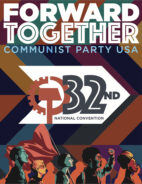
Good afternoon comrades and friends! A warm revolutionary welcome to our 32nd National Convention! And a special welcome to the delegates from our fraternal parties from around the world! We are very excited that you are participating in our proceedings.
We are so happy to be back home today in the great working-class town of Chicago. Chi-town! The city that gave us May Day. Chi-town! The city that gave us the birth of our Party and the Party’s press, the Daily Worker now People’s World. And this year we are celebrating People’s World’s 100th anniversary.
What a great tradition of struggle! Today, Chicago, you’re keeping that tradition alive: congratulations on winning community control of the police. Congratulations on the election of Mayor Brandon Johnson. Y’all keep doing it! Proving once again that the people united can fight back and win! And today we’ve come to Chicago ready to fight back and win!
The battlelines are clear. We are fighting a fascist danger at home and genocide against Gaza abroad. To defeat the danger at home, we’ve got to defeat the war abroad. Let’s make it plain: Biden’s Israel policy must be defeated today, so that Trump and MAGA can be defeated tomorrow! Military aid to Israel must be cut! The Netanyahu regime must be isolated! Palestine must be free and have an independent state! The support for Israel’s apartheid policies made in the corporate suites of this country must be defeated by mass movements in the streets!
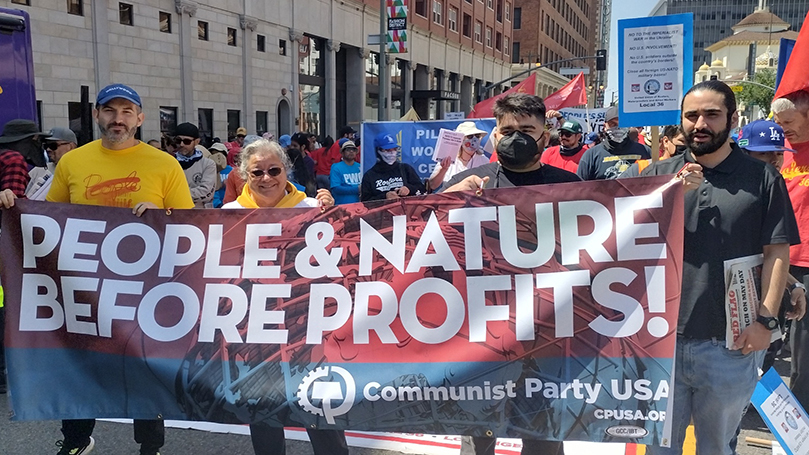
Mass movements in the streets
And that is exactly what’s been happening. The student encampments, the mass demonstrations, the sit-ins, the petitions, the resolutions by labor unions, and the “vote uncommitted” campaign are having a huge impact. We say today, keep the pressure on. In fact, turn it up, turn it way up! Mass public pressure is the only thing this ruling class understands. It’s all about power and relationships of power. It’s only by building mass working-class led movements that real change can be achieved.
That’s how we’re going to restore abortion rights and win back affirmative action. That’s how we’re going to end racist police violence. We’re fighting for the right to organize. We’re fighting for the right to housing, health care, and a sustainable environment. And we are fighting this Pride Month for the right to love who we want to love.
Let us say it out loud from this platform, we are fighting for the right to live in a new society, a socialist society where workers rule and people can be and breathe free.
A Trump victory would threaten all of these rights. That’s what January 6th was all about. Never forget the Confederate flags, the nooses, the bear spray, the hidden ammo, the Proud Boys, Oath Keepers, neo-Nazis and Ku Kluxers. But more than that, never forget the men in blue pin-striped suits and their attempt to stay in power no matter what. Never forget Trump standing in front of the White House, claiming the election was stolen. And by who? By Philadelphia, by Pittsburgh, Detroit, Atlanta, Phoenix, Tucson and Milwaukee. In other words, by Black folks and Latinos. In one breath, Trump criminalized two entire peoples, just like he criminalized the Central Park Five. This is the raw racism that’s at the very heart of MAGA.
Immigrants are a special target. First, they tried the wall. Then the Muslim ban. Now they’re planning concentration camps. That’s right, we said it, concentration camps. Think holding centers as large as Amazon warehouses; think thousands of red-state cops and the military kicking down doors, rounding up our children.
And if they come for immigrants in the morning, they’re damn sure coming for us at noon. Trump already said it. Think mass firings, think public lynchings, think public trials for the act of thinking. Think it can’t happen here? Think again. It already did. It was called McCarthyism.
In the first 180 days of a Trump administration, they plan to dismantle programs like food stamps and Section 8. They plan to get rid of the NLRB and the EPA. They’re going after marriage rights, civil rights, labor rights. And get this: they plan to bypass Congress, ignore the courts, and fire tens of thousands in order to make that happen. And when that occurs, these will be the first steps down the path toward a dictatorship. Hell yeah there’s a fascist danger! And it’s clear and present. Once you go down that path, there may be no turning back. That’s why everything has to be done now to prevent it.
Now, we’re not saying that the country would be fascist the day after Trump is elected. No, it will be the struggle over the implementation of their plans that will determine the shape of things to come. What will happen when Trump fires 50,000 civil servants or locks the door to the Department of Housing? What will happen when teachers refuse to stop teaching Black history or Latino history or feminist studies? How will students respond when debt cancellation is rescinded? What about the gay community when marriage equality is overturned? What will the broad working-class public and trade unions do when they go after Social Security, Medicaid and Medicare?
And what will Trump do when the people rise up and say no? Will he invoke the Insurrection Act, call out the National Guard and the militias, suspend the Constitution? Honestly, we don’t know. What we do know is that we don’t want to find out. Fascism in this country would mean a dictatorship. It would mean rule by the banks, Big Oil and the military corporations. Democracy as we know it, with all its limitations, would be eliminated. This would be a government of a new type. Not a difference in degree but a difference in kind. It would mean the substitution of one form of bourgeois rule for another.
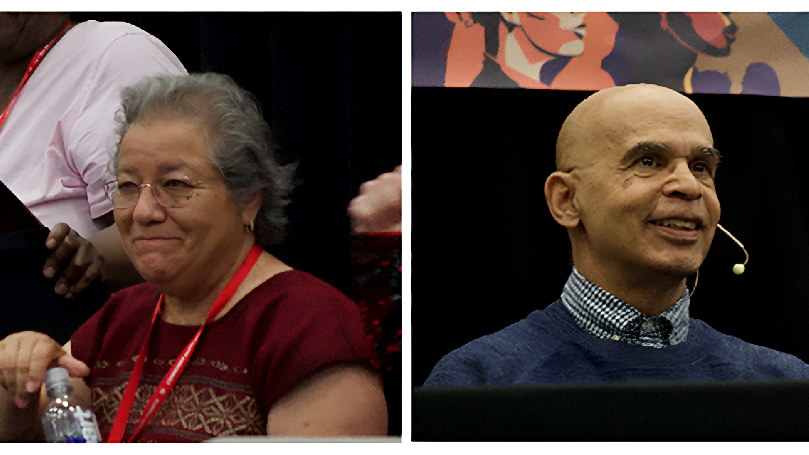
Do we already live under fascism?
Some have argued in our preconvention discussion that we already live under fascism. They say, “What about the mass arrests of the students? What about the support for genocide? What about the police occupation of our cities and neighborhoods? Ain’t that fascist?” And they have a point.
At the same time, mass arrests, genocide, repression, even terror are not unique to fascism. Capitalism has employed them widely throughout its history. Remember Marx’s words: Capital comes into the world, “dripping from head to foot, from every pore, with blood and dirt.” The bourgeois democratic revolution was a bucket of blood. The price the world paid for its limited democracy in the West was colonialism, slavery, rape and mass murder in the South and East. And we know workers, people of color and women in the West paid dearly too.
That price, however, did not make these capitalist democracies fascist, even though they employed barbaric methods. What we call fascism today is a special product of the imperialist stage of capitalism. It is characterized by a unique form of class rule. When you have a dictatorship of particular sections of the ruling class over all other sections and over society, when there is no space for struggle, when the opposition is outlawed; when you have martial law and are forced to live in exile; then we can talk of fascism’s arrival on these shores.
For now, there is room within which to struggle. Let us use that space to fight for a ceasefire in Gaza and for an end to the war in Ukraine. Let us use it to stop the expansion of NATO, end the blockade of Cuba, and bring the Cold War against China to a close. Let us use that space to address the enormous problems we face here at home: the stagnant wages, the homelessness, the poisoned environment, the epidemic of police murder, the mass shootings, the opioid crisis, and the epidemic of domestic violence against women.
Struggle against fascism has begun
It’s clear this is going to be a long and difficult fight. The good news is that the struggle has begun: workers are starting to take the fight to bosses. Strikes are up and concessions are down. Unions are putting new muscle into organizing drives. The AFL-CIO has declared its independence from MAGA and pledged to defeat them up and down the ballot. Then just a few weeks later they declared their independence from Biden’s Israel policy and demanded a ceasefire. And they’re continuing in that independent vein. UAW President Shawn Fain said it best after the White House condemned the student encampments: “If you can’t take the outcry, stop supporting this war.” In other words, if you can’t take the heat, get the hell out of that inferno you’re financing in Gaza.
This new spirit of class struggle didn’t come from nowhere. A broad left has been present in labor for many decades now. It is anti-corporate, anti-war, anti-racist, anti-sexist, pro-peace and pro-environment. It has a small but growing Marxist contingent. Listen: the resolution on Gaza, while fueled by rank-and-file activism, would not have happened without the presence of this left.
Party vision for labor
While celebrating these developments, we also recognize that the labor movement has many challenges. In spite of organizing efforts, less than 10% of the workforce is unionized. Labor is divided, with some internationals and independent formations outside of the AFL-CIO. Clearly the current level of unity does not correspond to the challenges labor faces from the bosses. Still, with smart tactics and militant struggle, important victories have been scored by the Teamsters, the healthcare workers, the actors and writers, and the UAW. We salute the Amazon Labor Union in their first victory against Amazon and wish them well in their affiliation with the Teamsters. And we applaud the Starbucks Workers United organizers who forced the company to the bargaining table. Congratulations!
In these circumstances, our Party needs to put forward a bold vision. William Z. Foster had such a vision. It called for industrial unionism and demanded unemployment compensation and Social Security. These concepts were powerful, they were timely and they laid the basis for building the CIO. Their battle cry was “Black and white, Unite and fight!”
What will be our vision today? What brand of unionism will unite workers across occupations? And what will be its demands?
Because we have a multi-racial, multi-national and multi-gender working class, this vision must address inherent inequalities within the class. Some people call this identity politics. We call it Marxism-Leninism. For example: undocumented workers comprise 4% of the workforce but have no voting rights; Prisoners compose 1% of the workforce – 55 percent of whom are people of color. Most cannot vote either. Women make up over 50% of the workforce, but their essential work in the home remains uncompensated. Shouldn’t our vision include voting rights for the undocumented and prisoners? Shouldn’t it include wages and healthcare for housework?
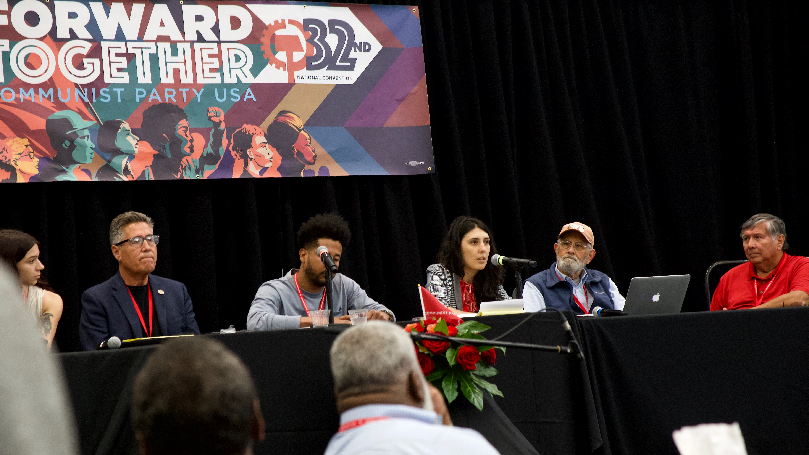
Then there’s the racist and sexist wage gap. We have long said it’s a source of super-profits. Do you know that today it’s wider than it was at the turn of the turn of the century? It’s true. And there’s no mystery as to why: Union density is lower. And the only way to address that is by passing the PROACT, which brings us back full square to the election. Our vision must demand eliminating the wage gap!
When applied to Party building, Foster’s concept of industrial unionism led us to adopt a policy we called industrial concentration. Industrial concentration meant focusing on building the party in key industries like steel, auto, electric and transport and in the communities where those workers lived. When some of those industries collapsed or were downsized in the ‘70s and ‘80s, that policy disappeared from our vocabulary and practice. However, the working class, while changing, has not disappeared. Shouldn’t our vision resurrect and reimagine this policy as applied to today’s circumstances? If so, to what industries and what communities should our attention be drawn?
The truth is, if we don’t have an approach to building the Party in specific industries and in specific working-class communities, we don’t have an approach to building a working-class Party. This convention should go on record to repledge itself to a policy of industrial or working-class concentration.
Rebuilding the Party in the working class
Comrades, what we’re trying to say is that the most important thing that we can do is to rebuild the Party in the working class and in the trade union movement. Everything hinges on that. A strong Communist Party among workers will shift the center of gravity in the class. It will mean greater unity in the trade union movement and in the broad working-class left. It will put the fight against racism and anti-immigrant hate on a whole new level. It will lay a firmer basis for combatting sexism. A stronger Party will act as a guard against fake populism and national chauvinism, an issue which we cannot ignore in our class.
And most importantly, a stronger Party will lay the basis for addressing the country’s deep systemic crisis. It’s been brewing for a long time: first with NAFTA, then with the TPP. As a result of these trade pacts 2.5 million jobs were lost. Add to that the Great Recession in 2008 when 4 million families lost their homes. Most were Black and Latino. These were tipping points. Working-class families all across the country, but particularly in the Midwest, never recovered.
Then we were hit by COVID. The economy went into a tailspin. Unemployment skyrocketed. And then things got really crazy. One day we were advised: “Wear a mask.” The next day “Don’t wear a mask.” The day after “Get a vaccine.” The day after that: “Don’t you dare get a vaccine. They’re filled with nanobots.” People didn’t know what to do!
Lessons of Covid
In order to address the Covid crisis, things that folks had been told could not be done were done. We got stimulus checks. Evictions were halted. Student debt payment was postponed. The child tax credit lifted millions of children out of poverty. Unemployment compensation was extended. Small-and-medium sized businesses got bailed out. It was almost like we had an anti-monopoly government.
While all this was happening, the MAGA right was blaming the victims for the crisis: the immigrants were the problem; crime was the problem; China’s the cause of all the misery.
But then the stimulus measures started to work. Unemployment eased. Supply chains started to deliver. A labor shortage developed and with it workers found themselves in a better bargaining position. Some left their jobs; some went on strike. Some demanded and won the right to work from home. Capital for a moment had to play defense. They did so in part by raising prices. Inflation skyrocketed. In response interest rates went up and once again the working class was forced to pay the price in more expensive loans – if you could get one – and increased unemployment.
Now we’re told the economy is booming. But booming for who? Rent is skyrocketing. Homelessness is increasing. Millions of children have been returned to poverty. Prices are still high and workers still have to work two and three jobs to make ends meet. Add to that the climate emergency, the worsening storms and the summer forest fires, while Trump promises Big Oil to undo the little progress achieved since he left office for the small fee of a $1 billion to his campaign fund.
What then is to be done? That’s the historic question posed by our movement since the time of Lenin, isn’t it? And the answer can be summed in one word: organize.
Now is the time for workers to organize and push as hard as possible for wages and benefits and for health and safety. Now is the time to push for housing and for canceling student debt. Now is the time to tax the rich.
Yes, now is the time for organizing – but not just any old kind of organizing but organizing as Communists – organizing with the plus. And here, we’ve got to draw the lessons from what was done during the pandemic: if it’s checks that are needed, write them; if it’s housing, build it; if it’s debt relief, grant it! Cancel the debt.
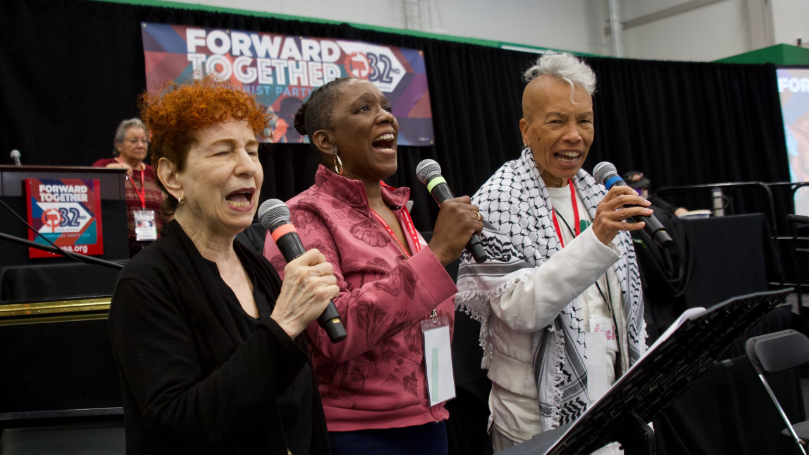
Building working class-led movements
The resources are there: the issue is – can we help make it happen? And that’s the role of the Party: to help make it happen by building working-class-led mass movements. That’s the path forward: to become deeply engaged in struggling around the day-to-day issues faced by the people. We respond to these issues as they occur. And that requires connections, on the streets, on the shop floor, in places of worship, in barbershops, nail salons, you name it: wherever people gather. And it requires responding quickly, taking initiative, helping formulate demands, finding points of unity, making connections, deciding what action fits and then taking that action – that’s what you call leadership.
While doing so, we point out over and again, the capitalist roots of these crises and the need for socialist solutions. That’s our plus. We are fighting for the right to a job, a quality education, control over our bodies, the right to vote, the right to live free of police murder. Capitalism constantly undermines and overturns these rights. That’s the nature of the system. The whole point is to reveal that true nature in the course of struggle. It’s that, and that alone, that builds socialist consciousness. That’s what’s going to lead to working-class power and socialism.
The role of the party is to struggle for working-class leadership in that fight. In fact, when we talk about concentration, that’s what we mean. We not only organize among workers – we’re not missionaries – but fight for their leading role.
Over the last several months, that has meant pushing for ceasefire resolutions in trade unions. It’s meant circulating the ceasefire letter among workers. It’s meant urging workers to support the students’ encampments. Today it means centering our coalition work in housing, environmental justice, political repression, and healthcare around involving the trade unions. We seek their endorsements, involve them in planning, solicit their advice and promote their leadership.
It is hard to overstate this. Do you know that the trade union movement is one of the few places in the country that provides the framework for real political independence from the two main political parties? It’s true. They have their own financing, mailing lists, phone banks, and get-out-the-vote efforts. They have their own endorsement process.
If you want to establish a new political party based on labor – and we do – doesn’t it make sense to begin with the unions’ electoral campaigns? It’s simply a matter of calling them up and volunteering. We’ve done it many times. After a while if you keep doing it, they’ll start calling you.
The upcoming election provides a unique opportunity. You want abortion rights, trans rights, voting rights? You want to cancel the student debt, protect Social Security? You want a Green New Deal? You want to pass the PROACT; you want to move the money? Well, you’ve got to participate in the election.
‘Lesser evilism’ or fighting for space?
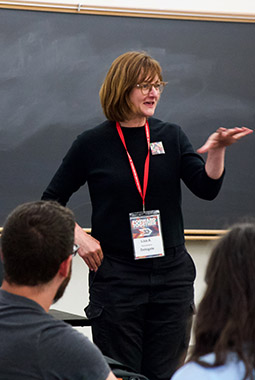
Some people call this “lesser evilism.” And we hear that. But we call it fighting for space. We call it choosing the battlefield on which we fight. And we know it’s going to take a fight no matter what. The issue is what fights and with who? And where do you have the greatest chance of winning? This is about power and relationships of power. It’s about leverage, and choosing how and when to fight.
And you’ve got to be in it to win it. You’ve got to go door-to-door in the neighborhoods, you’ve got to canvass, listen, and organize. You’ve got to develop working-class electoral platforms and field working-class candidates. And you’ve got to run for office yourself. Yes, we’ve got to run communist candidates, some of whom are in this room today.
Voting as a conscious act of collective action
You organize before the election and you vote in the election. And you do it like workers and communists do it: you do it as a conscious act of collective action. It’s about how we act as a class. It’s about an expression of working-class and peoples’ power. That’s why the “vote uncommitted” campaign was so powerful: it was a collective act of peoples’ power.
And yes, we’ve got to do more than vote. Voting is just one step. When you vote you block and you affirm – that’s great. It’s a beginning. The balance has shifted. But nothing has changed yet. After blocking you have to build. You go back to organizing around the issues; you take that election platform and you fight like hell for it. And you use every tool in the tool box in that fight. You lobby, you demonstrate, you petition, you occupy, you strike. Over and over, that’s the iron law of class and democratic struggle. That’s how we fight for working-class leadership in the current moment.
And the fight for working-class leadership is changing. There are many new things: The working class has changed in many ways. It is more multiracial. The ruling class has also changed. It too is more diverse. What’s new is that important sections of the working class have moved left. But the opposite is also true: big sections of capital have moved far to the right.
New ideas and old ideas
These circumstances have produced new ideas and demands. Take the freedom movement’s call for a Third Reconstruction: Now that is one powerful idea! Think about it. The first Reconstruction resulted in state power to the former slaves which they helped bring about by means of a general strike. It expropriated property without compensation. It instituted what they called abolition democracy.
What then, on the heels of a mass movement, could a Third Reconstruction accomplish? What would it look like in terms of new forms of democracy? What would it look like in terms of a redistribution of resources and wealth? Will the banks be nationalized? What about the military corporations, the pharmaceuticals or Big Oil? The point here is that new circumstances have created new ideas – a Third Reconstruction – which raise new questions that our party should help answer.
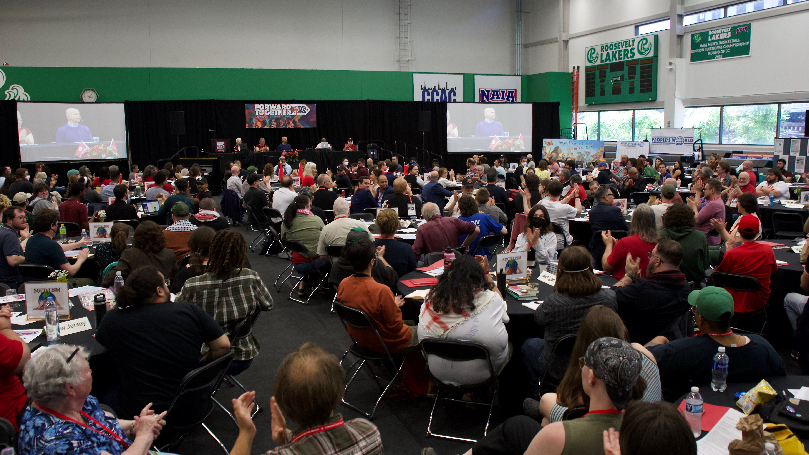
At the same time, new circumstances can give rise to old ideas that are repackaged and served up as new. Take the idea of settler colonialism. It is important not only to acknowledge but to do something about the ongoing impacts of how the country was colonized: the genocide and the racial and national oppression. Like all forms of racism this is not a thing of the past but continues into the present.
These impacts must be addressed and they must be addressed frontally. At the same time, there are variations of this concept that have appeared in the preconvention discussion that hold that the main contradiction is no longer class but between the colonized and the colonizers. Behind it lies the concept of the labor aristocracy that argues that the working class or sections of it have been bought off. This new version says white workers have more in common with the bosses than workers of color. They divide the class by race and call these workers settlers.
Now we know how the country was settled, don’t we? We know that because some of us were unsettled and shipped over here by the tens of millions during the Middle Passage. We understand the history of colonialism and we are painfully aware of the genocide against the indigenous population. We know that because some of us are their descendants. And we know that a huge debt still has to be repaid to the victims of the genocide and slavery. And that repayment must include upholding Native peoples’ demand for Land Back, restoration of sovereignty and compensation for its violations, upholding treaty rights, harm reduction, and shared responsibility. I mean at a minimum. And that’s a beginning, not the end.
But we also know that in order for that to happen we have to be united. And we know that this unity is possible because as workers we face a common system of exploitation. And in that system of exploitation, there is more that unites us, than divides us.
Our working class lives and struggles in an evolving multinational, multiracial, multigender capitalist state. The national question, racism, gender oppression cut straight across and through it. And underlie it in myriad interlocking ways. Uniting the class by fighting against these oppressions is central to addressing the nation’s problems. Central. In fact, the reality is that you can’t solve the nation’s problems without addressing it.
On the one side, there’s the ruling class forces of white supremacy and MAGA pulling the country apart. On the other there are the working-class forces of democracy pulling the country together. Comrades, this is an objective process that emerges from the very heart of the process of production. Lenin argued that under imperialism there are two tendencies on the national question. One trends towards separation, the other towards unity. Of the two, he said, the trend towards unity is primary.
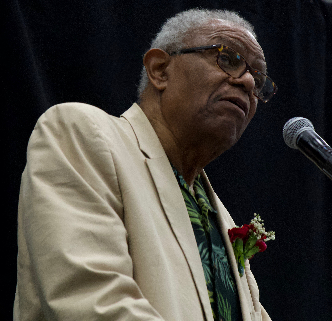
These are the foundation stones of our policy. We’ve got to remember that our task is to unite. But we remember this unity while objectively necessary is not automatic. And that this unity can only be brought about if there’s justice and that justice has to be fought for. And by justice we mean fighting to defeat racism and sexism now in the present. Not in some future.
Justice is being fought for
And that is exactly what is happening: justice is being fought for. The African American freedom movement, led by workers and women in their overwhelming majority, is in the thick of the fight not only against the MAGA right, but for peace and justice generally. Let’s recall that the African American ministry was among the first to challenge the White House on Gaza. Let’s recall the 60th anniversary March on Washington that brought together a wide coalition to recommit to civil rights and justice and defeat the MAGA right.
Let’s recall that the movements of the Latino peoples, now the single largest racially and nationally oppressed group in the country, remain an indispensable force for progress. As a growing presence in labor and in the nation’s politics, they are a key force for democracy and against Trump. Bilingual rights, immigrant rights, voting rights, the right to culture, and equal wages are among its chief demands. With the GOP threatening to invade Mexico, stopping the militarization of the border and peace are top priorities.
Comrades, let’s also recall that the women’s movements for equality, against misogyny, patriarchy, domestic violence and for abortion rights and equal wages is also a decisive force in U.S. politics – second to none. Women have been a mainstay against the Trump right and led the largest protests in U.S. history. Since the Dobbs decision, women have led the fight against the GOP right in election after election. They are a leading force in democratic, working class, and progressive movements generally.
Comrades, the task of this convention is to continue to fight to immerse the Party in these unfolding struggles. That’s how we’re going to rebuild our ranks. Party building, recruitment, and the consolidation of that recruitment is the order of the day.
And to do that successfully we have to change. We have to put aside individualism, put aside our egos and learn to work together. That requires listening to, trusting in, and accepting the leadership of everyone in the collective. Men have to listen to women, white comrades have to listen to Black, Latino and Asian comrades, straight comrades have to listen to our LGBTQ comrades-in-arms. And lest we forget, able-bodied comrades have to listen to our disabled counterparts. And not just any kind of listening but active listening and hearing what folks are trying to say.
But we must do more than listen. We have to train a whole new layer of Party activists from top to bottom. Cadre development has to be a priority and this convention should mandate the incoming National Committee to make that happen. We need skills, ideological and political skills, yes. But also, coalition building, civil disobedience, writing, speaking, photography and video-editing skills.
Collectivity – our superpower
Yes, we need to up our political and organizational game. Here we need to understand the politics of organization so that we are better able to organize our politics. And that means deepening our understanding of collectivity. The Party is based on collectives. Membership is realized in and through them. Collectives are the vehicles through which we organize our politics. It’s where our ideas and plans are tested in real life. It’s where theory becomes practice. And for that to happen our cadre must fully understand and practice democratic centralism. It is what allows the party to speak and act as one. Remember, collectivity is our superpower.
But in order for that superpower to work, people have to be convinced. Comrades have to understand the why of things. Therefore, cadre development must also provide a clear understanding of the ideas behind what we do. This demands a working knowledge of the Party program and the ideological basis for it. You can’t have confidence in the program, if you don’t know what went into it. And that means understanding the Marxist criteria that gives rise to it. Comrades have to be able to think on their feet. We’ve got to be able to defend our positions when necessary, but also be able to see the need to change them when that’s required
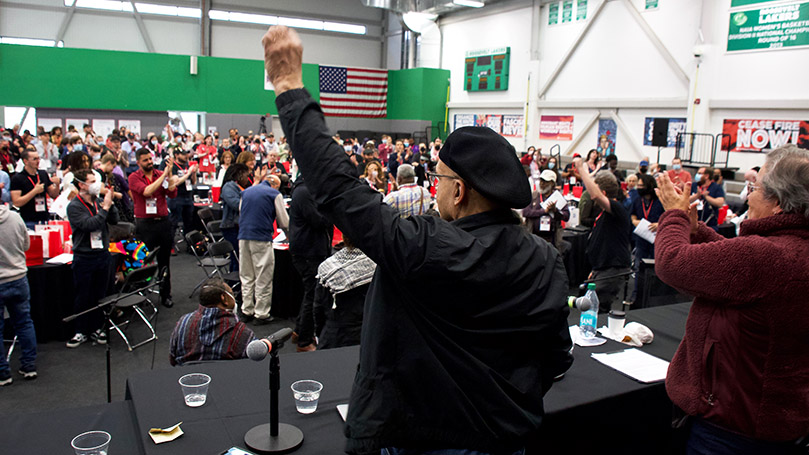
.
At the same time, while we’re doing all of this, we must fight to strengthen the Party organizationally at all levels. And we are taking important steps to do just that. Clubs and districts are now reaching out to and vetting new members on a regular basis. Ani, at the New York district convention, for example, said that the district’s membership collective regularly processes 30 to 60 members a month. The New York party has gone from three clubs at the last convention to 11 today. Congratulations! In Southern California, we’ve gone from two to nine clubs. Do you know that in Michigan, Laura tells us, in 2019 – around the time of our last convention – 10 people sat around a table and decided who would come. This time around, they had a day-and-a-half convention and now sport four new clubs. (and two more if you count the YCL). Again, congratulations!
We are also reaching out to and vetting new members in places where we don’t have anyone. The National Organizing Department has assigned two comrades, Esther and Carl. They say it’s tough work and honestly, the results are mixed. Building clubs in Montana, Mississippi, Wyoming, Idaho and Tennessee, where comrades are scattered over large distances, is a tough proposition. And while zoom may be the next best thing to being there, it’s still a real challenge to bring folks together and keep things functioning. Still a few clubs have been built, like in New Orleans and Tacoma, and comrades are continuing to work at it.
Today we’ve got over 100 clubs-and-counting that meet regularly. We say 100-and-counting because new clubs are in the process of being added. Saadia says one was added in northern Colorado a few weeks ago and Laura reports a new club was brought on board in Grand Rapids just last week. Welcome to the Party! All of us are stronger for it! The bigger the Party, the better the Party, the badder the Party, the more we’re able to do.
Strengthening organization
And of course, much more needs to be done. We are well aware of that. The Party is growing much more rapidly than we’ve been able to organize it. During the pre-convention period we received a number of ideas on how to move forward that we need to think through how to implement.
We know that communication has to be improved. We know that response times have to be sped up. Our infrastructure and websites need to be updated. We need better and more sophisticated technical and organizational tools.
We also need more bodies for the task. And over the last months we’ve added both to our volunteer and full-time paid staff. Our volunteers include Eric Brooks, Scott Hiley, Daniel Carson, along with our team at Good Morning Revolution: Taryn, Kei, Tim and Suz. Tina helps out as well in the New York office. Others work full time but do double time for the Party, like Ani, Dante, and Ben. Joelle and Roberta have been volunteering full-time for decades.
And even that hasn’t been enough. Recently the People Before Profits Education Fund, whose mission is Marxist education, added Erik to education work and Cameron Harrison to focus on labor education. Because of the Party’s growth, we have had to add to our full-time paid staff as well. And so, in social media, Fred and, last but not least in youth and student work, Aaron. Welcome to our full-time staff. And yes, this is going to put a big strain on us, particularly financially, but we felt we had to do it. And now we’ve got to produce and raise the money to make it sustainable.
And we know that even these additions will not be enough: our organizational work has to be expanded even further. Until now, the main emphasis has been on membership outreach. Going forward, it should also be expanded to oversee policy implementation, coordination of national campaigns and developing plans of work. In other words, it must assist the party in initiating and leading struggles. And electing a national organizational secretary as we proposed in the preconvention period is key to making that happen.
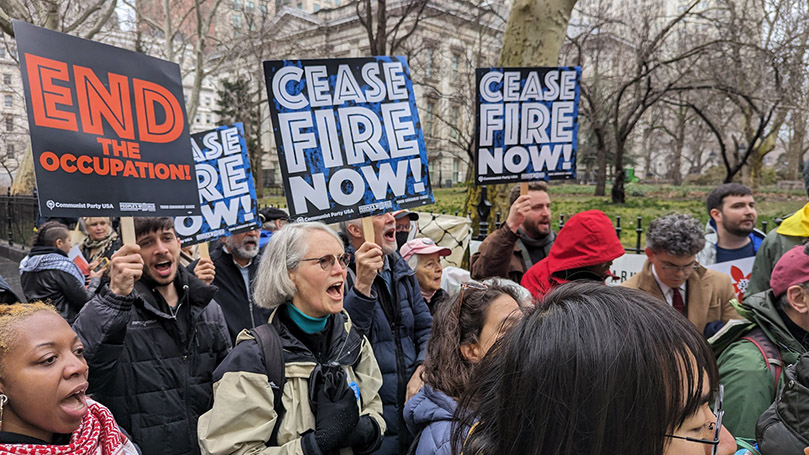
Our strength is in our clubs and districts
However, no matter how skilled, a single individual cannot get the job done alone. And even a stronger national collective is likely to prove inadequate to the task. The strength of the Party, as Joelle likes to remind us, is not in the national office, but in the clubs and districts. That’s where the rubber hits the road. At this stage in the rebuilding process, with some aging out and many new comrades coming in, the key issue is finding people who will convene and anchor the work. The question keeps coming up: Who will chair? Who will take responsibility for organization, finances, education? And the reality is that sometimes it’s tough to find comrades who are willing. In that situation, sometimes you’ve got to improvise.
Therefore, we’ve been forced to look for other solutions. And happy to say, we’ve found them. In Southern California, for example, they put in place an organizing collective of the district committee that met for a few years until two comrades, Janice and Richard stepped forward and were elected co-chairs of the district. The same thing happened in D.C. After a period in which the district exec coordinated the work without a chair, they too elected co-chairs, Carol and Dante. Until recently Michigan was in a similar situation without an elected chair. New York, Eastern Pennsylvania, and Missouri face similar challenges. The lesson here, at this stage of the rebuilding process, is that in order to move forward, you divide the leadership responsibilities in the executive bodies until comrades get a chance to learn the work and are ready to take on the tasks.
The communist press
Comrades, another essential part of the rebuilding process is building the communist press. It’s our voice; it’s our public presence, it’s our shaper of ideas. It should be our organizer of mass struggles. And when we speak of the communist press, we’re talking about People’s World, cpusa.org and our social platforms on Instagram, YouTube, X, Facebook, and we hope soon, TikTok.
Now, People’s World (PW) is our flagship. Everybody knows that. It’s a unique product of our movement. People’s World is a daily, 24/7 fighter on the front lines of the class struggle. This year, we celebrate its 100th birthday! Happy Birthday comrades!!
Our staff at People’s World is doing an amazing job. They’ve managed not only to reestablish but to maintain one of only two English language Marxist dailies on the planet. And they’ve done so with great skill.
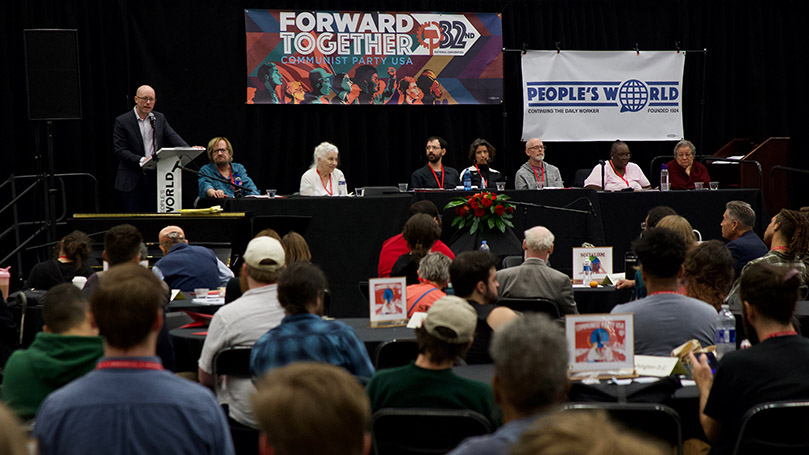
Our movement faces a unique challenge with our press, unlike any other aspect of our work: they’re confronted with how to interpret, translate, and engage in struggle on a daily basis and to do so in a way that’s fresh and interesting and exciting. You’ve got to captivate, educate and motivate, and implement what we call the communist plus and all of this while the whole world is watching. As C.J. said in the preconvention discussion, most people hide their mistakes, we publish ours.
In order to accomplish this our leadership over many decades have honed a unique approach to our press. It presents People’s World as the voice of the Party and the voice labor movement and people’s movements. This is a partisan approach, a class approach, one that if applied correctly and in a balanced way maintains a principled position while opening doors making it possible for People’s World to reach over a million readers a year.
However, it’s not enough to say that our Party’s approach to People’s World is unique. It has to be fine-tuned and adjusted in the course of changing conditions and circumstances. This is particularly true with respect to its role as the voice of the Party. That is something that has to be consciously and creatively fought for.
And the truth is that lately that voice is not what it needs to be. And this has given some the impression that People’s World is somewhat removed from our ranks. It is not: make no mistake, People’s World is ours. But we must do more than declare it. The Party has to write for it; we have to be quoted in it. And its work across that country has to be featured. That is not only the job of the Party website as is sometimes argued, People’s World has to find a way as well. The Party matters. What we do is news. And if we don’t cover ourselves, you’ve got to ask: who will?
However, there’s an even deeper issue at stake here. And it has to do with our self-conception and how we see our role. As Gus Hall once said, our press supports the left, but it is not a publication of the broad left. It fights for a united front, but it is not the press of the united front. People’s World fights for militant trade unionism, but it is not a trade union publication. What’s missing from all of these concepts is the plus. What’s missing is our unique role and conscious intervention and advocacy for socialism. And that’s an adjustment that we need to be very conscious about making and maintaining.
But even more needs to be done. People’s World must be more than the printed word in digital form. It’s got to be a multi-media enterprise. It needs video, podcasts and other forms of reader engagement. It also needs greater involvement of our membership.
The good news here is that in a number of places around the country, comrades are finding ways to write for and circulate it. Writers groups are at work in Ohio and Michigan and one is starting in Southern California. Comrades in New York are writing as well. We hope you keep it coming. We need your articles, videos and photos, so please keep sending them in. And we need to acknowledge them and respond and edit in a timely way.
We also need to think about our audience and who we’re writing for, who is being attracted to our ideas. Do you know that most who come to our websites are young people between 18 and 30 and particularly those between 18 and 24? It’s true. At this stage most are young white men. We’ve got to think through how to build on and change that: how to deepen and diversify our content, to speak to people of color, women, and immigrants. Unless we do that, we’ll be unable to speak to our entire class. We have to ask ourselves, what are the issues that are shaping the thinking and fighting capacities of today’s young generation and how do we respond to them? That means that we have to understand that there’s a youth question which is in a state of constant flux and change. We saw that most dramatically, powerfully and beautifully with the student uprising around Gaza. And we’re proud to say that a number of comrades were involved in those encampments: at the University of Michigan, at Michigan State, at U Mass Amherst, at Cornell and Yale. Congratulations comrades.
Young Communist League
All of this brings us directly to the issue of the Party’s youth policy and the Young Communist League. Our last convention pledged to embark on a communist youth project and to work to re-found the YCL. We remain deeply committed to that goal. In some places around the country, districts and clubs are working with the YCL including in D.C. Philadelphia, New York, Connecticut, Michigan, Texas, Indiana, Massachusetts, Missouri and Kentucky. Needless to say, there need to be many more. We’ve established a national Party and YCL collective that’s met monthly over the last couple of years to encourage that process. We’ve also organized the Little Red Schoolhouse every summer that brings together dozens of young comrades for a 10-day introduction to Marxism. The fourth Little Red Schoolhouse will be held this year at the end of July.
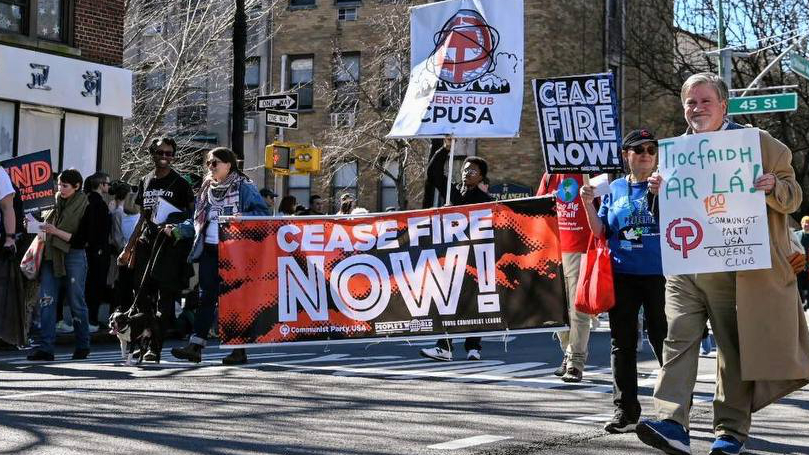
We’ve learned a lot since starting this process. We’ve learned first that the building of the YCL is absolutely essential to the present and future growth of the party. Young people still come to socialism in their own way, according to their unique circumstances and conditions. This still requires its own organizational expression.
At the same time, we’ve also learned that this expression needs to be fleshed out. We’ve got to ask the question: what are we trying to build? How is that both similar and different from what the Party does? This is a political as well as organizational and ideological issue. Politically, does the YCL have a specific youth and student focus? We used to say that the role of the YCL was to campaign around a youth and student bill of rights. Is that still the case? What does that look like? If not, why not and what is it replaced with?
Organizationally, do we have the same structure, the same collectives and committees, the same conditions of membership as the Party? We used to say that organizationally the YCL was more of a movement and that its structure should reflect that and be less rigid and formal. Conceptually we saw the YCL in part as a school of socialism and therefore its membership standards were not as high as the party’s. Should that still be its approach? We think so, but let’s discuss it.
Then there are the ideological issues. We share the same worldview, Marxism-Leninism. Many members of the YCL are also members of the Party. We used to say two things in this regard. First, the YCL, while independent, operated under Party guidance and that the role of Party members in the YCL was to not only to help us develop and deepen our youth policy but to also carry out Party policy among the youth.
Comrades, we’ve also learned we need to do more to assist. We need to work for deeper Party-YCL relations. That means regularly meeting and discussing issues. It means fighting for youth leadership in the Party. Many of the problems that confronted YCL clubs over the last few years might have been avoided had there been greater consultation and closer working relations. Let’s work to correct that in the future.
Waystations on the road to greater structure
Presently there are calls in the YCL for greater structure. And some want a convention. Do we have the cadre to make that happen? What would demonstrate that? Shouldn’t we consider waystations on the road to greater structure? For example, organizing a national conference around a burning issue like the Gaza genocide. We attempted two national meetings over the last two years that didn’t come to pass, the last one a meeting of our students. If it had occurred we’d have been much better able to respond to and participate in the student uprising. But we didn’t have the strength to pull it off. Can we do it now? Let’s see. Or can we organize a national Party conference on youth to help deepen our understanding of what’s taking place in the youth movement and help build YCL collectives around the country? What about YCL regional schools in the fall and spring in addition to the Little Red Schoolhouse? Taking on a couple of these initiatives will give us a better idea of what we’re able to do.
For our part, we stand ready to assist. With that in mind we’ve hired a wonderful YCL organizer, comrade Aaron in DC, who we’re sure will make a big contribution to these efforts. Let’s help make their work a success!
Let’s get to it!
Comrades, I’ve thought a lot about how to end this report. And then I had a “lightbulb moment” – I decided I’m not going to end it – you are! If you think about it, that’s the role of the convention: to round out the main report, deepen it, amplify it, and if necessary change its propositions. We have had very rich experiences in the last period: fighting racist police murder in the George Floyd uprising, campaigning for abortion rights, and struggling for housing. We have been on the picket lines throughout, taking the side of striking workers all over the country to say nothing of our anti-imperialist work in solidarity with Cuba, Venezuela and for Palestine.
So let the debate begin! Let’s get to it!! Thank you!!
Images: Meet the leaders, 32nd National Conventionby Taylor Dorrell / People’s World; Jarvis Tyner at 32nd National Convention (CPUSA); CPUSA celebrates International Workers Day by SoCal CPUSA District; Labor Unions Join Congresswomen Bush, Tlaib in Calls for Ceasefire (Creative Commons); Honor immigrant workers by CPUSA; The artists of the People’s Music Network by Taylor Dorrell / People’s World; Voting rights are human rights by Michael Fleshman (CC BY-SA 2.0); We’re not going back (CPUSA); Defeat Trump by CPUSA; Peoples World by Peoples World; NY YCL by NY YCL.
Posted on June 26, 2024
0